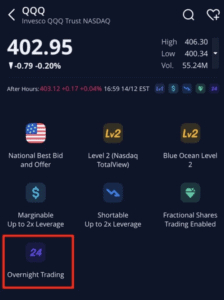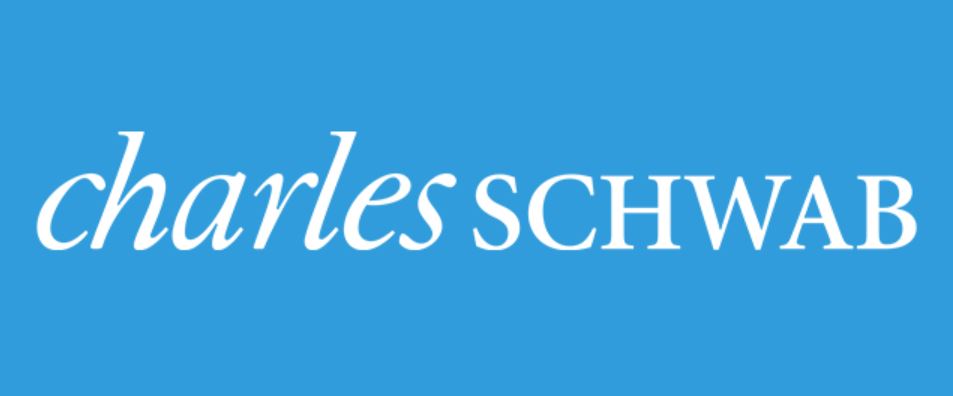





If you're looking to trade stocks or ETFs before the market is open, or after the market is closed, you will need a brokerage platform that offers extended trading hours.
Pre-market trading gives you the ability to place trades before the market opens.
After-hours trading allows you to place trades after the market is closed.
Extended-hours trading can offer opportunities to react to news outside of standard market times—but it also comes with added risks such as wider bid-ask spreads and lower liquidity. For example, major news stories are often released before the stock exchanges open or after they close.
Two examples are earnings releases and economic news, such as GDP, employment, and retail sales. In addition, the Federal Reserve often makes major announcements between the market close on Fridays and market opening on Monday mornings.
All can have a major impact on the direction of the market or on individual stocks.
We will be covering 10 of the best brokerage platforms for pre-market and after hours trading.
| Brokerage | Trading Hours (EST) |
|---|---|
| Robinhood | 7:00 am – 8:00 pm |
| Webull | 4:00 am – 8:00 pm |
| Interactive Brokers | 4:00 am – 8:00 pm |
| Firstrade | 8:00 am – 8:00 pm |
| TradeStation | 4:00 am – 8:00 pm |
| Charles Schwab | 7:00 am – 8:00 pm |
| Fidelity | 7:00 am – 8:00 pm |
| Merrill Edge | 7:00 am – 8:00 pm |
| E*TRADE | 7:00 am – 8:00 pm |
| Moomoo | 8:00 pm (Sun) – 8:00 pm (Fri) |
The stock market is open from 9:30 am to 4:00 pm EST on Monday through Friday, with the exception of holidays.
Going forward, all times mentioned within this article will be EST (eastern standard time).
Long term investors don't usually place trades during the extended trading hours. Instead, it is usually short term traders who are looking to capitalize on volatility - or up and down price movement - in the market.
Extended hours trading gives you the ability to react to those announcements, either before the market opens or after it closes.
However, do keep in mind that the markets are significantly more volatile during the extended trading hours. Since there are fewer participants at these hours, prices can go all over the place.
Most brokerage firms only allow limit orders during the pre-market and after hours trading. This means you have to specify the exact price or better that you are looking to buy or sell a stock for.
This is because the extended hours sessions are significantly more volatile, with greater price swings up and down.
Due to limited liquidity and wider price spreads during extended hours, most brokerages only support limit orders to help manage execution risk. Investors should carefully monitor order status, as execution is not guaranteed unless the specified price is met.
With that being said, here are some of the best brokerages for extended trading hours.

Robinhood is a financial services company that revolutionized the investment landscape by providing a commission-free trading platform.
Now, most other brokerage platforms have followed suit, ditching trading commissions altogether.
Founded in 2013, Robinhood's mission is to democratize finance for all by making investing accessible and affordable. The platform offers users the ability to trade stocks, options, ETFs, and cryptocurrencies without paying traditional brokerage commissions.
Robinhood offers two options for trading in the extended hours:
First, we will cover the extended hours trading.
Robinhood supports trading of all stocks and ETFs from 7:00 am until 8:00 pm for all users.
However, not all stocks and ETFs are eligible for fractional share investing in the extended trading hours. That means you would need to buy a whole share, or wait until the normal market hours to purchase a fractional share.
In addition to the extended trading hours, Robinhood also offers a 24 Hour Market feature.
This allows you to trade certain stocks and ETFs 24 hours a day for 5 days a week.
The 24 hour market trading begins at 8:00 pm on Sunday and ends on Friday at 8:00 pm.
Between those times, you are able to trade over 900 stocks and ETFs 24 hours a day.
Robinhood offers commission-free trading during both regular and extended hours. However, not all stocks and ETFs are eligible for fractional share investing during extended hours; whole shares must be purchased.

Webull is a more advanced commission free trading app offering a lot of great research tools. Similar to Robinhood, they are a commission free trading platform that supports stocks, ETFs, options and cryptocurrency trading.
However, beginner investors might be overwhelmed by the amount of information available. That is why they are not our top choice, despite offering a wider range of trading hours compared to Robinhood.
Webull allows you to trade stocks from 4:00 am to 8:00 pm. Only limit orders are supported during the extended hours trading.
In addition to the extended trading hours, Webull also offers a 24 hour market feature.
Webull supports overnight trading, and you simply have to enable the feature within the app.

This allows you to trade select stocks and ETFs 24 hours a day, 5 days a week (M-F) just like Robinhood.
The platform provides commission-free trading during extended hours.

Interactive Brokers, or IBKR, is a popular investing platform that caters to both experienced traders and beginners.
Introduced in 2019, IBKR Lite is a user-friendly option tailored for casual investors. This service allows users to make unlimited, commission-free trades of U.S.-listed stocks and exchange-traded funds.
Notably, Interactive Brokers provides access to a wide range of investment options, including options, futures, mutual funds, crypto, and fixed income, across various global markets.
With IBKR Lite, there are no mandatory account minimums or inactivity fees, making it an appealing choice for those looking to start investing hassle-free.
Additionally, the platform offers competitive interest rates on cash balances, the opportunity to earn extra income through their Stock Yield Enhancement Program, and access to low financing rates for borrowing against your account.
Through TWS, you can get access to the extended trading hours.
This allows you to trade stocks from 4:00 am until 8:00 pm on the days the market is open.
IBKR also offers overnight trading for U.S. stocks and ETFs, with hours from 8:00 pm ET to 3:50 am ET. The overnight trading session begins on Sunday at 8:00 pm ET and ends on Friday at 3:50 am ET. Trades executed between 8:00 pm ET and 12:00 am ET will be recorded with the following trade date.
IBKR charges no extra fees to trade in pre or post market hours.

Firstrade is another highly rated investment platform.
It provides comprehensive research from some of the top providers in the financial industry, including Morningstar, Zacks, and Benzinga.
In addition, they offer trading in over 11,000 mutual funds, commission-free. Most other brokers charge fees on mutual funds.
It’s also a top choice if you want to trade options, since it’s one of the few brokerages that charge no contract fee, in addition to being commission-free.
Firstrade allows you to trade stocks from 8:00 am to 8:00 pm EST.
The platform offers commission-free trading during extended hours for stocks and ETFs.
Click here to open an account with Firstrade!

TradeStation is widely acknowledged to be one of the top investment platforms for both advanced and active traders.
Part of that reputation owes to the fact that TradeStation was designed specifically for professional and institutional traders.
They offer all types of investment options, including cryptocurrencies.
TradeStation allows you to trade stocks and ETFs from 4:00 am to 8:00 pm.

Given that Charles Schwab is pretty much good at everything, it’s not possible to identify specifically what they do best.
If it’s possible to say, it may be in the area of customer support. They offer 24/7 live support, as well as a network of branches in and around major cities across the country.
Schwab offers virtually unlimited investment options, and is suitable for both self-directed investors, as well as anyone interested in a managed portfolio option.
Charles Schwab allows you to trade stocks and ETFs from 7:00 am to 8:00 pm.
The platform offers commission-free trading during extended hours for stocks and ETFs.

As the second-largest investment brokerage firm in the world and Schwab’s primary competitor, the two platforms are just about equal in almost every regard.
Fidelity can accommodate investors at all levels but is also well suited to both self-directed investors and those looking for managed investment options.
And again, like Schwab, they offer top-notch customer service, 24 hours a day, seven days per week. They have a network of several hundred branches around the country, in case you like good old-fashioned face-to-face contact with your investing activities.
Fidelity allows you to trade stocks and ETFs from 7:00 am to 8:00 pm.
Fidelity offers commission-free trading for stocks and ETFs during extended hours.

Merrill Edge, integrated with Bank of America, offers a comprehensive platform suitable for investors at all levels. They provide access to both pre-market and after-hours trading, allowing clients to react to market-moving news and events outside regular trading hours.
Extended Trading Hours:
Trading Features:

E*TRADE is a comprehensive brokerage platform that supports extended-hours trading, catering to both early risers and night owls. They offer access to pre-market, after-hours, and overnight trading sessions, providing flexibility for various trading strategies.
Extended Trading Hours:
Trading Features:

Moomoo is a digital brokerage platform that offers investors access to global markets with advanced trading tools and real-time data. In certain regions, Moomoo provides 24-hour trading in Singapore, Malaysia, and Australia, allowing investors to trade U.S. stocks and ETFs around the clock, Monday through Friday.
Extended Trading Hours:
Trading Features:
While extended hours trading offers the potential for greater flexibility and the ability to react to breaking news, it also comes with several risks that traders should be aware of:
One of the biggest risks during extended trading hours is lower liquidity. With fewer participants in the market before and after regular trading hours, there are fewer buy and sell orders.
This can lead to difficulty in executing trades at your desired price. Stocks might not be as easily accessible, which can lead to delays in getting your order filled or, worse, having to settle for a less favorable price.
Extended hours trading often sees much higher price swings than regular market hours. The limited volume of trades combined with a smaller number of participants can cause prices to fluctuate dramatically, sometimes even on minor news or rumors.
This increased volatility can lead to significant profits, but it can also cause quick and large losses if the market moves against your position.
During extended hours, the difference between the bid (buy) and ask (sell) prices is often much wider than during regular market hours.
Wider spreads mean that you may end up paying more to buy a stock or selling it for less than you would during the standard trading day. These wider spreads can be particularly disadvantageous for active traders who rely on small price movements for their gains.
With fewer participants in the market, there is an increased potential for market manipulation. Small groups of traders can more easily influence the price of a stock or ETF, creating false signals or pushing prices up or down.
This makes it more difficult for traders to trust the price movements they are seeing, especially when the volume is low.
Because of the rapid price swings and volatility, trades made during extended hours are often subject to higher levels of uncertainty.
If a trader does not carefully monitor the market or set stop-loss orders, they might find themselves caught in a trade that moves dramatically in the opposite direction, leading to unexpected losses.
Most brokers only allow limit orders during extended hours trading, which means you need to specify the price you are willing to accept.
This can be beneficial for controlling entry and exit points, but it also means that there is a risk of orders not being filled if the market doesn't reach your specified price. In fast-moving markets, your order might never be executed at all.
Extended hours trading can be heavily influenced by overnight news or events, such as earnings reports, geopolitical developments, or economic data releases.
These factors can cause significant price swings before the market opens, and if you are not prepared or fail to react quickly, you may be caught in an unfavorable position.
Since the broader market is not active during extended hours, there is often a lack of investor sentiment. Regular market hours see large institutional investors, who tend to balance out the buying and selling activity.
In extended hours, retail traders dominate, which can lead to erratic price movements without the stabilizing influence of institutional investors.